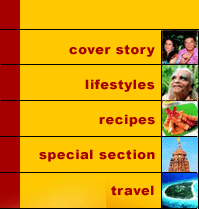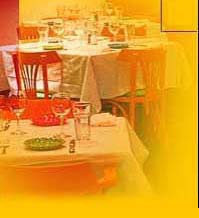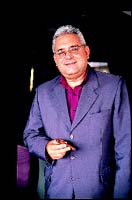


 The Good Smoke Guide
The Good Smoke Guide
Manuel Garcia Morejon He began smoking cigars when he was 20. And he started with a Cohiba Coronas Especialas and the Montecristo Especial No. 2. His father and his uncles were great cigar smokers, going upto ten cigars a day. Manuel watched them from close and wanted to start himself. Then at a party, he smoked his first cigar with friends. �The experience was wonderful,� he says. He smoked a cigar every day after that.
|
|
MANUEL Garcia Morejon, 44, is the Cuban cigar representative of the world-famous Habanos company of Fidel Castro�s government. Actually, Habanos is a joint venture. A 50-50 partnership between Cuba and Altadis, a French-Spanish tobacco giant. Habanos has equal representation from both sides: two company presidents; two chairmen; and, four vice-presidents. Manuel is one of the VPs. And the most important, perhaps, because he is in charge of the sales and marketing of Habanos cigars worldwide. His job takes him abroad for at least 250 days in a year.
His main market is Europe. Not the US at all. Cuban cigars are not officially sold in the US. This is for political reasons. Cuba has a Communist government and the American view on communism is by now well known. �We don�t want to do business with them any more than they with us,� says Manuel cheerfully. Then he adds, with a wry smile, �But illegally, the US smokes about eight to ten million pieces of Cuban cigars a year!�
He began smoking cigars when he was 20. And he started with a Cohiba Coronas Especialas and the Montecristo Especial No. 2. (Those, with the Cohiba Robusto, remain his personal favourites till this day.) His father and his uncles were great cigar smokers, going upto ten cigars a day. Manuel watched them from close and wanted to start himself. Then at a party, he smoked his first cigar with friends. �The experience was wonderful,� he says. He smoked a cigar every day after that. �More and more, sometimes three a day. Then, depending on the kind of day, even five. And then I am in the cigar business,� he says happily in his Cuban English.
Not everybody smokes cigars in Cuba. The country has a population of 11 million and this includes women and children and old folk. The women smoke, but not a lot in public. Certainly not like in the US. �But then, the US has more women that Cuba,� Manuel says cleverly. Even Fidel Castro, for whom the Cohiba Lanceros was originally created, does not smoke cigars. He gave them up about ten years ago. And the World Health Organisation honoured him with a prize for being leader of a country that manufacturers the best cigars the world but who will not smoke because of the world�s anti-smoking campaign!
Cuba produces 300 million cigars a year. Unfortunately or fortunately, 150 million is exported. And what is kept for national consumption is a lower quality cigar. �Foreigners enjoy our best cigars, but we don�t mind, we are proud,� says Manuel. �Cigars are cheap in the domestic market. They cost a peso a piece. And one dollar is 20 pesos. Tourists in the dollar market of Cuba can buy cigars for as little as 60 cents a piece and as much as 30 dollars a cigar.� Cuba, naturally, is the cheapest place for Cuban cigars in the world. What you buy here would cost you two or three times as much in Europe. And in the East, where cigars are most expensive, as much as
25 per cent more. Unfortunately, this has given rise to a lot of counterfeit cigars being sold in the world, Manuel regrets. �They sell as Cuban cigars and this is not good for Cuba. If you haven�t smoked a Cuban and try out one of these fakes, you will think they are the best in the world!�
His advice is to buy Cuban cigars only from a Habano outlet. �They are the official distributors. They care for quality and conservation,� he explains. But incredibly, fake cigars are sold in Cuba as well. The come from the Dominican Republic, from Europe. And in Cuba, where it is a tradition to hand-roll cigars, locals approach you on the roads and ask if you want to buy cigars for 25 dollars a box that would cost you 300 dollars in a shop! �This, again, is bad for Cuba,� says Manuel. But there is nothing that can be done. He is excited, therefore, to be entering a �clean� market like India. He�s met the Indian government to try and sell Cuban cigars in the Dutyfree shops here and the first one opens at the Delhi airport this year end. Bombay is next.
Manuel enjoys his cigars particularly when he is stressed. �Smoking a cigar is very relaxing, better than any medicine, and to enjoy it, you need time and quiet. I smoke because I enjoy the taste of the cigar.� His first cigar is had as early as at 6.30 in the morning! That�s because Manuel begins his day at that hour. �A cup of coffee and then a Montecristo No. 4. This is the best time for a cigar, it is so early and quiet.� Early perhaps in Cuba, but in Europe it is already lunchtime, and in India it is 3.30 in the afternoon. He works upto 8 p.m. and smokes maybe three or four cigars a day.
Is cigar smoking bad for health? �I will not say it is good for health,� he answers diplomatically. �People that don�t smoke cigars die just like the others!� He enjoys his cigars with Havana Club, a very popular Cuban rum. And he says that cigars can be matched with food as well. �Habanos has 36 different brands and 350 different sizes. You could find a cigar for every food. And a cigar for every mood as well.�
|

Home Page
About the mag
Subscribe
Advertise
Contact Us